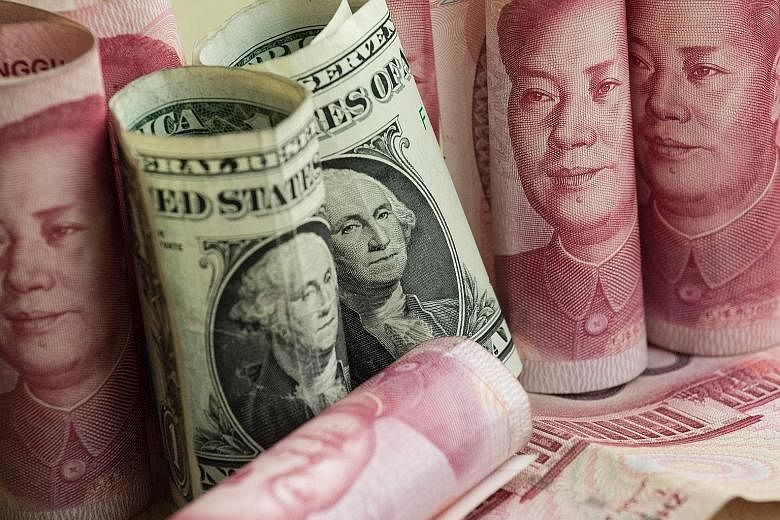BEIJING • China's foreign exchange reserves unexpectedly fell below the closely watched US$3 trillion (S$4.2 trillion) level last month for the first time in nearly six years, even as the authorities tried to curb outflows by tightening capital controls.
Reserves fell by US$12.3 billion last month to US$2.998 trillion, compared with a drop of US$41 billion last December, the People's Bank of China (PBOC) said yesterday.
While the US$3 trillion mark is not seen as a firm "line in the sand" for Beijing, concerns are swirling in global financial markets over the speed at which the country is depleting its ammunition to defend the currency and staunch capital outflows.
Some analysts fear a heavy and sustained drain on reserves could prompt Beijing to devalue the currency. The yuan fell 6.6 per cent against the rising US dollar last year, its biggest annual drop since 1994.
Further erosion of the world's largest stockpile may prompt policymakers to again tighten measures for controlling outflows and on companies transferring money to other countries.
"With reserves dropping below the psychologically important threshold of US$3 trillion, this will further ramp up pressure on Chinese policymakers to prevent the further draining of reserves," said IHS Global Insight's Asia-Pacific chief economist Rajiv Biswas.
"The Chinese government and the PBOC are now facing a tremendous battle to stem further significant capital outflows while also trying to maintain confidence in the yuan."
Capital outflows accelerated in recent months as the yuan suffered its worst year of losses against the US dollar since 1994, declining 6.6 per cent. An estimated US$739 billion left the country in the first 11 months of last year, according to a Bloomberg Intelligence gauge.
The authorities recently rolled out stricter requirements for citizens converting yuan into foreign currencies as the annual US$50,000 foreign exchange quota for individuals was reset on Jan 1.
Analysts expect downward pressure on the yuan to resume, especially if the US continues to raise interest rates, which would likely trigger fresh capital outflows from emerging economies such as China, and test its enhanced capital controls.
For last year as a whole, China burned through nearly US$320 billion of reserves, on top of a record drop of US$513 billion in 2015.
China's gold reserves rose to US$71.29 billion at the end of last month, from US$67.88 billion at the end of last December, data published on the PBOC website showed.REUTERS, BLOOMBERG

